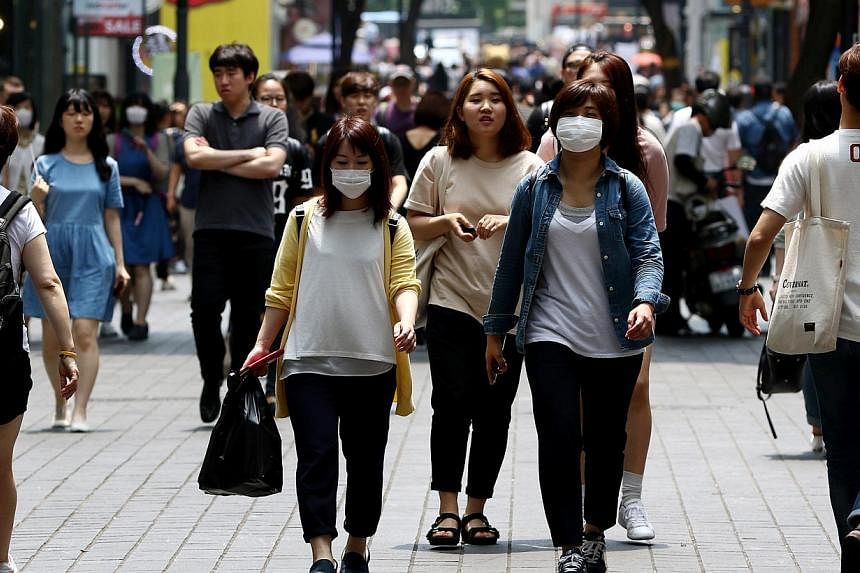SOUTH Korea has said that it is safe for people to go about their daily lives and for tourists to visit the country, as the Middle East respiratory syndrome (Mers) outbreak is contained within hospitals and there is no evidence of spread to the community.
It was misinformation that bred fear of the disease that has infected 150 people and killed 16 in the country so far, and the government is now "very confident" of controlling the outbreak, officials said at a briefing with foreign journalists in Seoul on Monday.
"I am sorry for all the inconvenience caused due to the outbreak, but there is no need to be afraid of travelling to South Korea," said Mr Kim Chong, Second Vice-Minister of Culture, Sports and Tourism. "The government has implemented various safety measures for tourists and we hope that Mers will be stamped out quite soon."
More than 3,700 tourist facilities, including hotels, guest houses and recreational areas, have been equipped with thermometers, hand sanitisers and surgical masks as preventive measures, and some 16,000 Mers leaflets have been handed out to raise awareness, the ministry said.
Tourists can call travel hotline 1330 for assistance if they develop Mers-like symptoms, and there is also an insurance scheme to cover medical expenses and compensation if a tourist is diagnosed with Mers.
Tourist arrivals have dropped 24.6 per cent in the first 11 days of June, the ministry revealed. If this continues until August, South Korea will lose about US$900 million (S$1.2 billion) in tourism revenue.
Mers was first diagnosed in South Korea on May 20, and the outbreak so far is largely associated with hospitals, including the Samsung Medical Centre (71 cases), Pyeongtaek St. Mary's Hospital (37 cases), Dae Cheong Hospital (13 cases) and Konyang University Hospital (11 cases).


